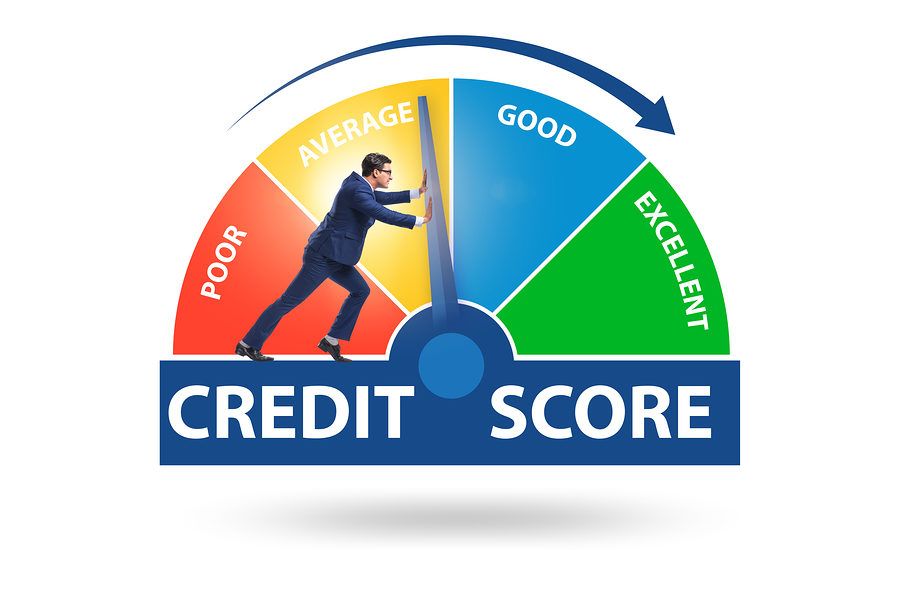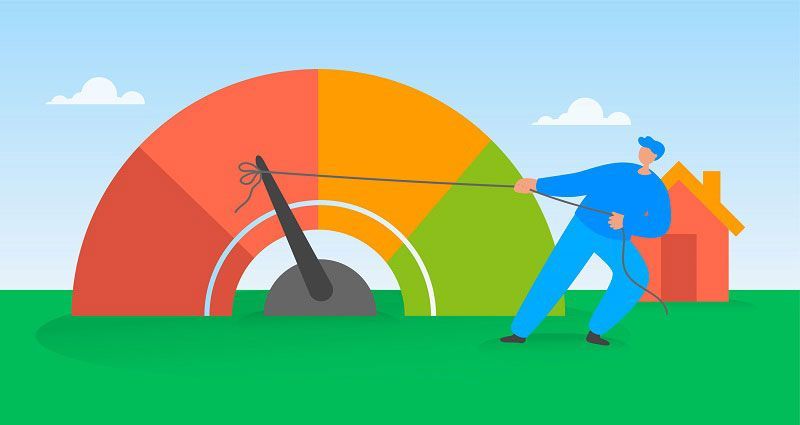We are an Equal Employment/Affirmative Action employer. We do not discriminate in hiring on the basis of sex, gender identity, sexual orientation, race, color, religious creed, national origin, physical or mental disability, protected Veteran status, or any other characteristic protected by federal, state, or local law.
Unlocking Your Financial Future: Understanding the 5 Key Components of Your Credit Score
Your credit score is the key to unlocking your financial future. Understanding how it’s calculated can help you make better financial decisions and avoid costly mistakes. Many people find their credit score to be a mystery—sometimes it drops even when they make payments on time! If you've ever been frustrated by fluctuations in your score, this guide will break down the five key components of your credit score so you can take control and boost it effectively.
Why Your Credit Score Matters
Your credit score is a three-digit number that reflects your financial responsibility to creditors. It affects everything from securing a mortgage or auto loan to getting approved for credit cards and even determining your interest rates.
The better your score, the more favorable your loan terms—lower interest rates, smaller deposits, and better financial opportunities. In fact, 90% of lenders use FICO scores as their primary credit evaluation tool (source). But how exactly is your FICO score calculated? Let’s break it down.
The 5 Components of Your Credit Score
1. Payment History (35%) – Never Pay Late!
Your payment history is the most important factor in your credit score. It includes:
- On-time vs. late payments (payments that are 30+ days late are reported to credit bureaus)
- Collections and charge-offs
- Bankruptcies or foreclosures
🔹 Pro Tip: Always pay at least the minimum payment by the due date. Setting up auto-pay can help prevent accidental late payments. If you’re struggling, reach out to creditors to discuss payment plans before you fall behind.
📌 More on improving your payment history: How Late Payments Affect Your Credit Score
2. Credit Utilization (35%) –
Keep Your Balances Low
Your credit utilization ratio refers to the percentage of available credit you’re using. High utilization can hurt your score, even if you pay your balance in full each month!
🔹 Best Practice: Keep your credit card balances between 10-30% of your credit limit. For example, if you have a $5,000 limit, don’t carry a balance higher than $1,500 at any time.
🔹 Secret Tip: Your balance is reported to the credit bureaus on your statement closing date, NOT when you make a payment. If you pay your credit card bill before the statement closing date, you can lower the reported balance and improve your utilization ratio.
📌 More on credit utilization: Mastering Your Credit Score
3. Length of Credit History (15%) – The Longer, the Better
Credit bureaus consider how long your accounts have been open. Older accounts demonstrate stability and reliability.
🔹 Best Practice: Avoid closing old credit accounts, even if you don’t use them often. Keeping them open helps maintain your average account age.
📌 More on the importance of credit history: How are Credit Scores Made?
4. New Credit & Inquiries (10%) – Be Careful with Hard Pulls
Every time you apply for credit, a hard inquiry is recorded on your report, which can slightly lower your score. Applying for multiple credit accounts in a short time signals to lenders that you may be in financial trouble.
🔹 Best Practice: Keep new credit applications to a minimum and only apply when necessary.
🔹 Good to Know: Soft inquiries (like checking your credit score on your own) do not affect your credit score!
📌 More on credit inquiries: Does a Hard Enquiry Damage My Credit Score?
5. Credit Mix (10%) –
Variety Matters
Having a healthy mix of credit types boosts your score. Lenders like to see that you can manage different types of credit responsibly.
A strong credit mix includes:
- Installment loans (e.g., mortgages, auto loans, student loans)
- Revolving credit (e.g., credit cards, home equity lines of credit)
🔹 Best Practice: If you only have one type of credit, consider adding another responsibly (e.g., opening a credit card if you only have loans).
📌
More on credit mix:
How Your Credit Mix Affects Your Score
The #1 Mistake to Avoid: Late Payments
The fastest way to
destroy your credit score is to miss a payment by 30+ days. Once reported late, your score can drop
by 50-100 points instantly!
🔹 Avoid This Pitfall:
- Set up automatic payments or reminders for all bills
- Pay at least the minimum amount due on time
- If you’re struggling, contact creditors ASAP to discuss options
📌 More on how to recover from late payments: How to Remove Late Payments from Your Credit Report
Your Credit Score is in Your Control
Improving your credit score isn’t magic—it’s a strategy. By understanding these five components and making small changes, you can boost your score significantly.
Credit Score Quick Tips Recap:
✅ Pay
on time, every time (set up auto-pay if needed!)
✅ Keep
credit utilization below 30%
✅ Don’t close old accounts unless absolutely necessary
✅ Limit
hard inquiries (apply for new credit only when needed)
✅ Maintain a
healthy credit mix
Your credit score is one of the most powerful financial tools you have. By managing it wisely, you can unlock better financial opportunities and a brighter financial future.
Have questions about your credit score? Drop a comment below! 🚀
📌 Need expert advice on mortgages? Check out Loan with Jen for more home financing tips and resources!









NMLS #514497
Full service residential lender with an experienced team offering expert service, reliable communications and on-time closings in the greater Houston area.
NMLS #278675


Every week we release educational videos related to hot topics in the mortgage industry on YouTube.
Subscribe to our channel to stay in-the-know!
All Rights Reserved | Jennifer Hernandez | Legacy Mutual Mortgage. NMLS #514497
Made with ❤️by ARBA
